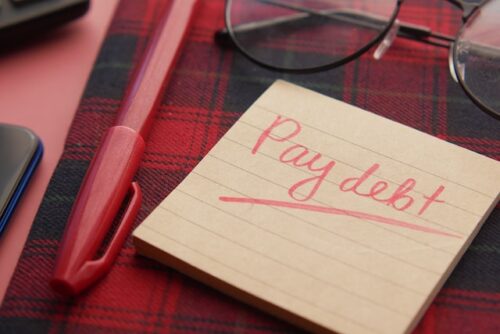
One aspect that many who file for bankruptcy are unaware of is how the discharge works. Unfortunately, many assume that all debts will be eliminated, which is far from the truth. As such, familiarizing yourself with how discharges work and what debts can be eliminated is critical. The following blog explores what you should know about these matters if you’re considering bankruptcy and the importance of working with an Orange County consumer bankruptcy lawyer to help guide you through this complicated process.
What Is a Bankruptcy Discharge?
When you file for bankruptcy, the goal is to pay back as much of the debt as possible before having the remaining eligible debts discharged. This essentially negates your liability for the debts. As such, when a debt is discharged, you are no longer legally obligated to pay back any portion of the remaining debt.
It’s also important to understand that once a debt is discharged, the creditor can no longer make any collection efforts on the debt. They can no longer contact you about the outstanding amount, file a lawsuit against you to reclaim the funds, or garnish your wages.
You should also note that not all debts are discharged during bankruptcy. In Chapter 7, your liability for secured debts, which is a debt backed by collateral like a mortgage or car loan, can be eliminated but the lender may still seize the property unless you work out a repayment plan. Additionally, if you have debt from taxes, family support obligations, or if you are paying criminal or civil fees for fraud or larceny, these debts will not be discharged.
When Does a Discharge Happen?
When the bankruptcy discharge occurs will depend on which chapter was filed. Typically, debts in Chapter 7 bankruptcy are discharged upon the completion of the case, typically around six months after the case is filed. This is due to the quick nature of Chapter 7, which involves the liquidation of assets to pay creditors before discharging remaining eligible debts.
For Chapter 13 filers, the discharge will come once the repayment plan is complete, which is typically three to five years after filing.
It’s important to understand that during the bankruptcy process, you are granted an automatic stay. Essentially, this means that creditors are prohibited from making collection efforts against the debtor, and all current action must stop. There are exceptions for matters like domestic relations orders, like alimony or child support, and restitution for victims of crimes, as these payments must continue. Additionally, if a creditor wishes, they may petition the court to lift the automatic stay so they may pursue repayment.
The bankruptcy process can be incredibly complicated. As such, if you are considering filing, it’s in your best interest to connect with an experienced bankruptcy attorney to guide you through this process. At the Law Offices of Michael D. Pinsky, P.C., we understand how overwhelming debt can be. That’s why our firm is committed to helping our clients through the bankruptcy process so they can experience relief. When you need help, our firm is here. Contact us today to learn more.
